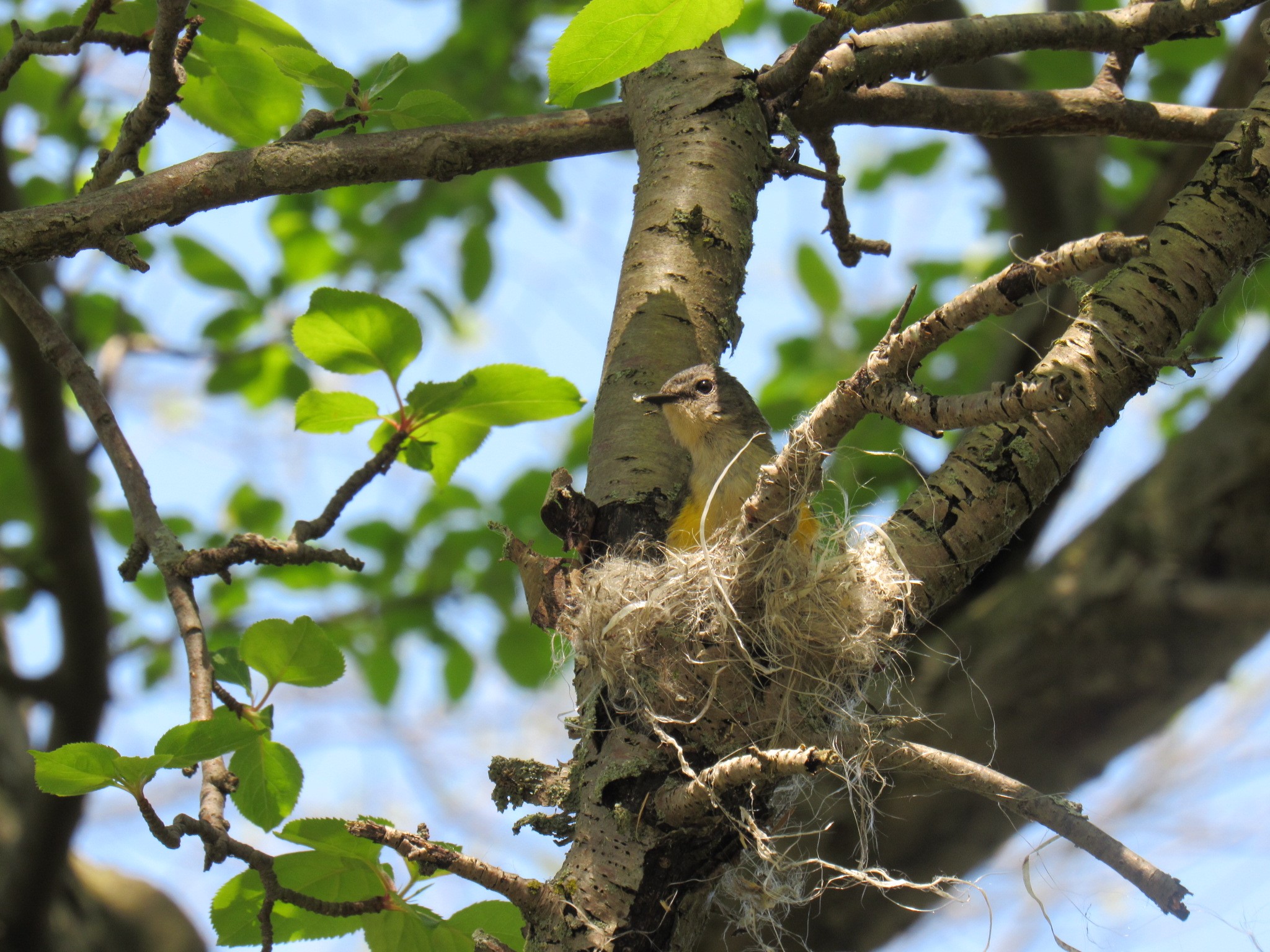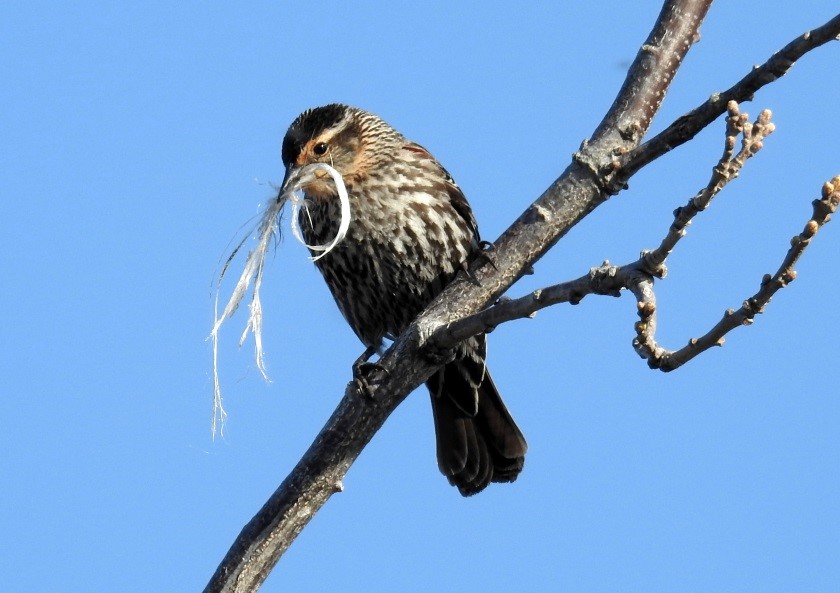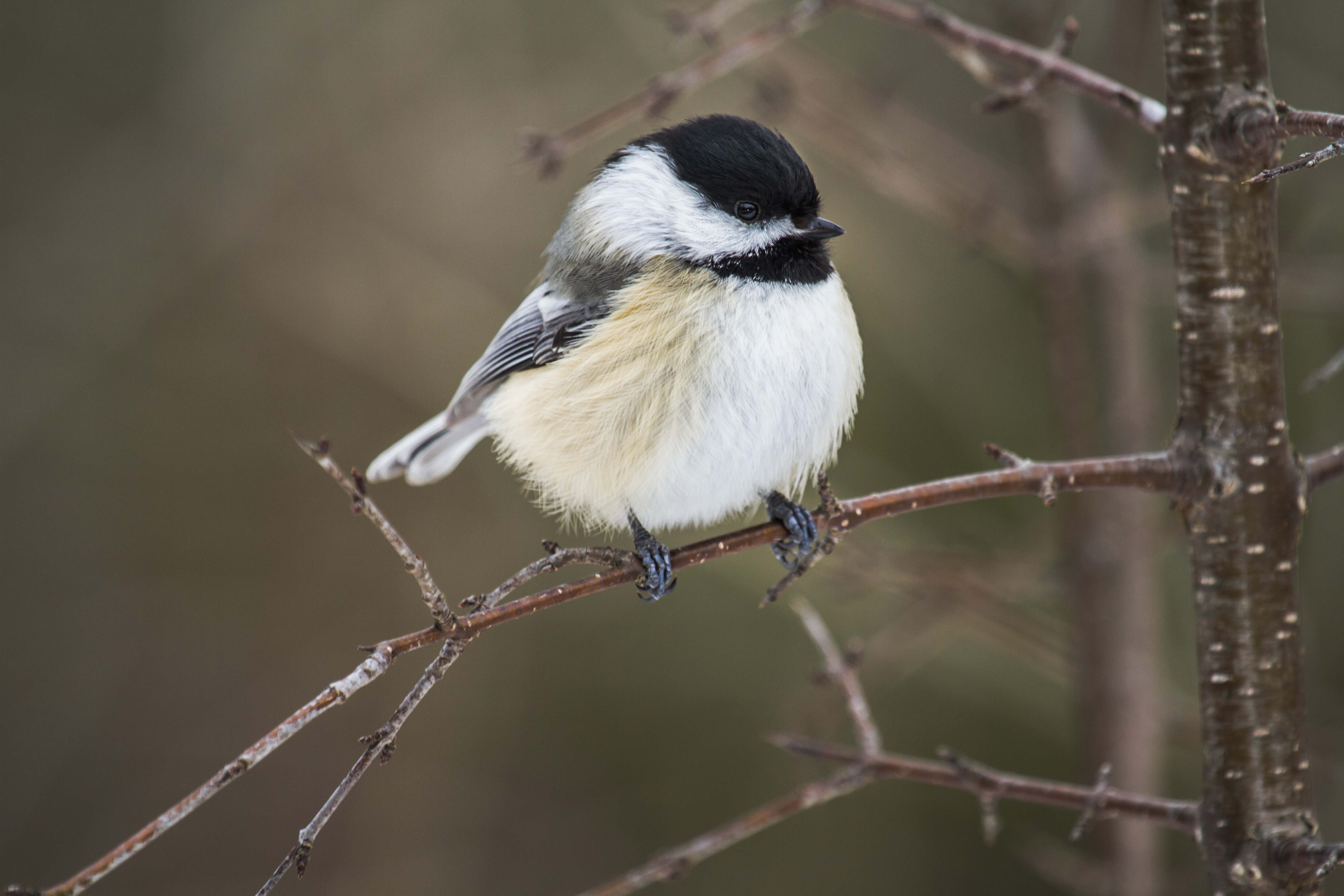Today’s post comes from Eva Paleczny, Learning & Education Specialist with Ontario Parks.
On my drive to work one morning last month, I noticed a bunch of Mourning Doves sitting in a row along an electrical line. As I continued driving, I wondered why birds gather in groups like that. Are they being social? Is it advantageous to their survival?
Birds are among the most commonly seen wildlife in our parks and cities, yet probably among the most difficult to observe and identify, due to their intricate colour patterns, quick movements, and ability to stay hidden from view. Not to mention the HUGE variety of bird species out there!
Despite this, I’ve seen many young children express awe and excitement when they see a bird fly by or land on a nearby window sill. These are new sightings for them and they are curious…but eventually, they become ordinary sightings.
How can you tap into discovering birds with your children at home? How can you spark a lifelong curiosity in birds and other creatures?
Here are some fun ideas you can try out from your own backyard:
Make believe
Engage your children’s imaginations by pretending you are birds that need to build nests for your babies.

Ask lots of open ended questions to get them inspired, such as:
- What kind of bird are you?
- Are you a small or big bird?
- What kind of habitat/home do you live in?
- Do you need to keep your nest warm?
- Do you think the nest should blend in with your surroundings?
Explore your backyard for the perfect materials to build your nests! When everyone is happy with their nests, ask lots of questions to prompt sharing, such as:
- What did you use to build your nests?
- Why did you choose to use these materials?
- How many eggs do you think will fit in each nest?
Before or after sharing, you could even draw a picture of the bird that might use the nest. After, be sure to return all materials (except garbage!) back to the natural environment together.
Sit spot
Find a spot to sit quietly and observe the world around you. This can be a short daily, or weekly activity that also builds some independent reflection into your lives. This is a great backyard activity.

With your children, decide how long you will stay in your sit spots. Take journals and coloured pencils along if you like, to draw or make notes about what you hear, feel, see, smell, and even taste!
Make note of different sounds you hear (traffic noises, people’s voices, bird sounds, airplanes), things you feel (wind blowing on your face, the ground beneath you), things you see (birds, plants, insects, berries, houses), and things you smell (the neighbour’s laundry or cooking, a strong smelling plant or tree nearby).

When the time is up, share your observations with each other. If you like, bring the conversation back to birds by asking some questions:
- Did you see or hear any birds?
- What did they look like?
- What do you think they were doing?
- Which bush did you see them in?
Silent safari
Challenge your children to sneak through the backyard with you in search of birds! Look for movements, sounds, and signs they’ve left behind (a feather, nest, or droppings). Bring journals to draw or write about your discoveries.

Before beginning, choose a time frame (such as 10 minutes) and agree not to talk or make a sound as you move about your yard. Rehearse a call-back sound, such as an owl hoot or wolf howl!
After exploring you can ask questions to prompt observation and memory, such as:
- How many birds did you see flying overhead?
- Were they large or small?
- What colours did you see?
- Which one was your favourite?
- Did you see any birds in trees?
- What do you think they were doing?
- Did you see any signs of bird activity, such as a feather?
- What does this feather remind you of?
- Did you hear any bird sounds?
- What do you think it was saying?
- What was your most surprising discovery? Your best discovery?
Looking to take your birding adventures up a notch?
Binoculars can really enhance your discovery of birds by allowing you to get a close up look at their intricate colour patterns and movements! Learn more about choosing binoculars for children.

Find out how you and your children can contribute to scientific research and become community scientists.
Also, some cool birding apps include eBird for recording your sightings, and the free Merlin app as an accompanying field guide. Merlin provides info on the birds you are most likely to see based on your location and season, and provides tools to help you identify your bird quickly.
